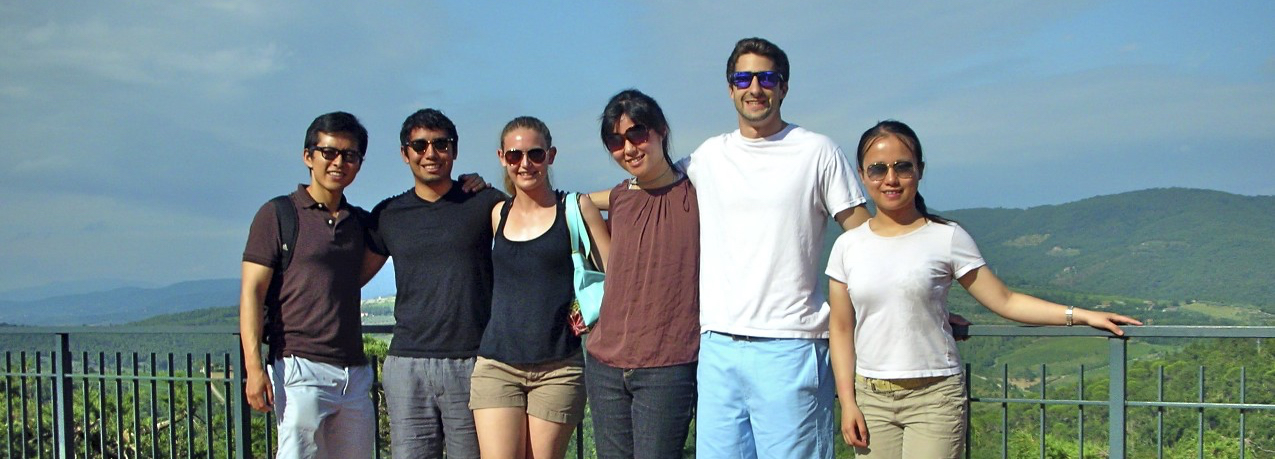The David H. Koch School of Chemical Engineering Practice at MIT is like no other educational experience. Practice School internship replaces the research thesis required in conventional master’s programs. However, this is NOT a conventional co-op assignment. No other engineering internship requires such intense effort on multiple company projects at an advanced technical level. No other program challenges its students to hone their interpersonal and communications skills to this degree. No other program has the day-to-day interaction with company personnel and management teams. The rewards for students are great.
How the Practice School Program Works
-
Typically, there are three categories of students in Practice School: MIT S.B. students accepted into Practice School (the “fifth year” program), B.S. students who apply to MIT only to attend Practice School (“terminal Master’s”), and students in the MIT Ph.D./Sc.D. or Ph.D.CEP programs. Fifth year and terminal Master’s students can usually finish the M.S.CEP degree in one calendar year.
-
The M.S.CEP requires that you complete two semesters of coursework. The same core curriculum is required of all chemical engineering graduate students at MIT. Core courses include thermodynamics, transport phenomena, reactor engineering and systems engineering.
-
After your coursework is complete, you will attend Practice School Stations at host company sites. Your class of six to ten students will spend two months at one station, and then move to another station for two more months. (In the shorter summer term, one of these stations will operate only one month.) At each station, teams of two or three students will work on month-long projects. You can expect to work on teams with a variety of your peers and to be a team leader once or twice.
-
During Practice School, you are not a company employee – you are enrolled in a course and will be graded on your performance. The MIT Station Director will evaluate your technical ability, your ability to communicate, your leadership, and your professionalism. The Director also helps prepare the projects, guides your work, and assists in locating resources and solving problems.
-
During the course of each project, the student teams are required to prepare three formal talks, a short scope of work, and a final report documenting the work. All of this is required within a tightly controlled, four-week time period.
-
The experience is rewarding but very intense, requiring organizational skills, hard work, long hours and, of course, technical ability. You will gain valuable skills working as part of a team, defining a problem, managing resources to achieve objectives, interacting with company personnel, drawing conclusions, and communicating your work.
The Projects
Project topics are posed by the host company, and you will attack them using the company’s resources. The project objectives are ambitious, and you will pursue them at an intensive pace. You will experience technical challenges, the necessity of planning, opportunities for teamwork and leadership, and requirements to communicate technical material in oral and written form, all in the context of a genuine business objective. These are not homework problems. This is the heart of the program.
Projects cover a surprisingly wide array of topics, even within a single company. Sometimes you will be asked to solve an operating problem in the plant. You might be asked to identify production limitations in a process or to make a preliminary design and cost estimate for a new process. Your sponsor might ask you to develop a new engineering method for a specific task. You may be doing laboratory work, surveying technical literature, developing math models, analyzing production data, deploying a variety of computational tools, questioning plant operators or reviewing plant procedures – in short; you will be exercising your skills as a chemical engineer.
Housing and Costs
While resident at the stations, you are paid a normal graduate student stipend and your tuition costs are covered. Housing, usually in attractive apartments, will cost approximately the same as what you pay while residing at MIT. Rental cars – one per project team – solve transportation problems after the long hours of work.
Diversion
Practice School is not all work! On the weekends, you will have the opportunity to take a break for recreation and enjoy a diversion from the intensity of your particular project. The event depends on the location of your station, preferences of your class, and season of the year. You might tour area attractions, such as a Kyoto shrine, or a European castle. You might organize a soccer game, go hiking, or try a new restaurant.
In the past, Practice School participants have enjoyed skiing on snow and water, deep-sea fishing, canoeing, bicycling, rafting, wind-surfing, and much more. They have also experienced the cultural diversities of their host company’s location through local food, art, and landscape.
The close professional and personal interaction during the Practice School semester usually results in a unique camaraderie among students and their directors that lasts long after they leave the program.


